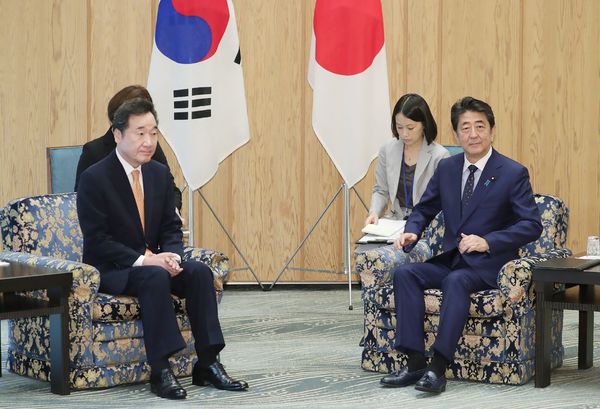TOKYO, Nov 2 (NNN-NHK) – Japanese and South Korean lawmakers, agreed that more dialogue and work was needed, for the two countries, involved in a trade spat, stemming from a dispute over wartime compensation, to break the stalemate and ease tensions.
Fukushiro Nukaga, leader of a nonpartisan group of lawmakers here, committed to promoting friendly ties between Japan and South Korea, told a meeting with South Korean lawmakers at the Diet building in Tokyo that, positive decisions must be made by both camps, in order to resolve the conflict.
Kang Chang-il, his opposite number in South Korea, said, while ties remained strained, with the wartime labour dispute impacting the two countries’ trade relations, the continuation of dialogue remains paramount.
Japan and South Korea have seen bilateral ties sink to their lowest level in recent years, following South Korea’s top court last year, ordering Japanese firms to pay compensation to forced labourers during Japan’s 1910-1945 colonial rule of the Korean Peninsula.
Japan, for its part, claimed the rulings are not in line with international law and run contrary to the foundation of friendly and cooperative relations between the two neighbours, since the 1965 normalisation of diplomatic ties.
Japan maintains the matter of compensation for wartime labour was “finally and completely” resolved under the pact.
With the diplomatic rift widening between the two neighbours, Japan went on to remove South Korea from its “white-list” of nations, entitled to, simplified export control procedures, marking the first time Japan has revoked a countries’ trusted trade status.
Seoul had been on the “white-list” since 2004 and had been guaranteed preferential treatment, in terms of importing certain products from Japan.
South Korea retaliated by taking Japan off its own “white-list” and announced tighter restrictions on certain imports from Japan, including coal ash and some waste recycling materials.
South Korea then followed up by scrapping the General Security of Military Information Agreement or GSOMIA, with Japan, on exchanging classified military information, as the tit-for-tat dispute escalated.
The GSOMIA pact, signed in 2016, enabled the two neighbours to share military information.
As the bilateral dispute continued, Japanese Prime Minister, Shinzo Abe, held talks with South Korean Prime Minister, Lee Nak-yon, last month, marking the highest-level talks held between both countries in more than a year, raising hopes that some progress could be made by both sides, in resolving the conflict.
Despite the lack of tangible progress made during these talks, however, with a potential meeting between Abe and South Korean President, Moon Jae-in, on the sidelines of the UN General Assembly in New York, still up in the air, Abe and Lee both agreed in principle that the protracted dispute should not be left unchecked, as the two counties are important neighbours.– NNN-NHK






